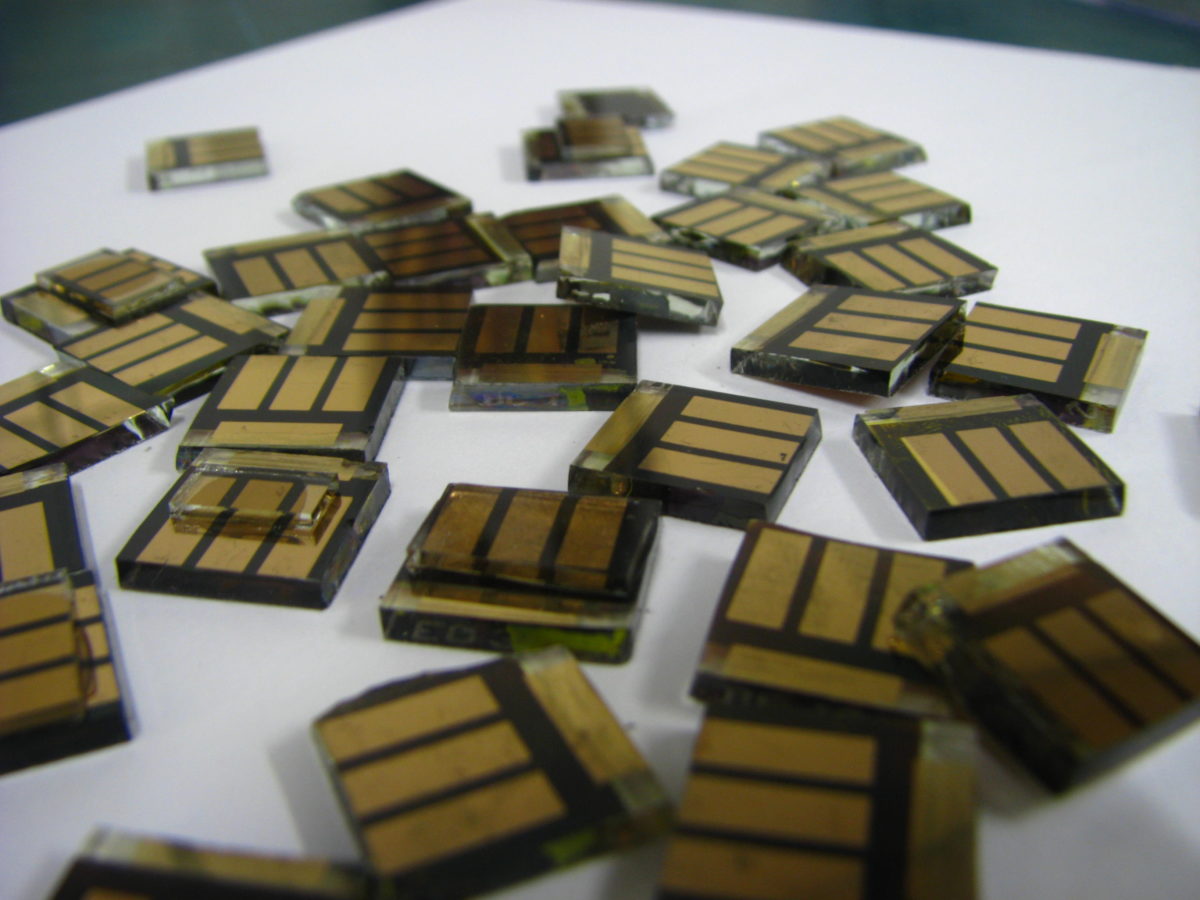Solar cells based on organic lead halide perovskites have shown high efficiency rates, but degrade rapidly in natural conditions, after just a few days. Currently, the only way to prolong the lifespan of perovskites is to encase them in glass. However, the glass coating limits the flexible function of perovskites and adds costs as well as weight to the cells. A team led by scientists from the Imperal College London (ICL) claims it has now discovered the mechanism that causes their decreasing performance in air, and proposed possible solutions.
The researchers discovered that so-called superoxides are formed when incident light releases electrons in the cells, which react with the oxygen in the air. These superoxides then attack the perovskite and trigger the decrease in performance of the solar cell.
According to the UK scientists, this process is supported by spaces within the structure of the perovskites that is normally “filled” with molecules of iodide. However, iodide is a component of perovskite material itself and due to defects those molecules are missing in some spots. Superoxides later take advantage of these voids, as the researchers reported in the journal Nature Communications.
The team also found out that adding an extra dose of iodide ions after manufacturing the cell did improve the stability. However, a more permanent solution could be to find a way to engineer the iodide defects out. “This opens up a new way of optimizing the material for enhanced stability by controlling the type and density of defects present” said lead researcher Dr Saif Haque from the Department of Chemistry at ICL.
The researchers now planning to expose the solar cells to a mix of both oxygen and moisture to test the stability of the solar cells in real world conditions. “We have now provided a pathway to understand this process at the atomic scale and allow the design of devices with improved stability” Haque added.
By Carl Johannes Muth
This content is protected by copyright and may not be reused. If you want to cooperate with us and would like to reuse some of our content, please contact: editors@pv-magazine.com.



By submitting this form you agree to pv magazine using your data for the purposes of publishing your comment.
Your personal data will only be disclosed or otherwise transmitted to third parties for the purposes of spam filtering or if this is necessary for technical maintenance of the website. Any other transfer to third parties will not take place unless this is justified on the basis of applicable data protection regulations or if pv magazine is legally obliged to do so.
You may revoke this consent at any time with effect for the future, in which case your personal data will be deleted immediately. Otherwise, your data will be deleted if pv magazine has processed your request or the purpose of data storage is fulfilled.
Further information on data privacy can be found in our Data Protection Policy.